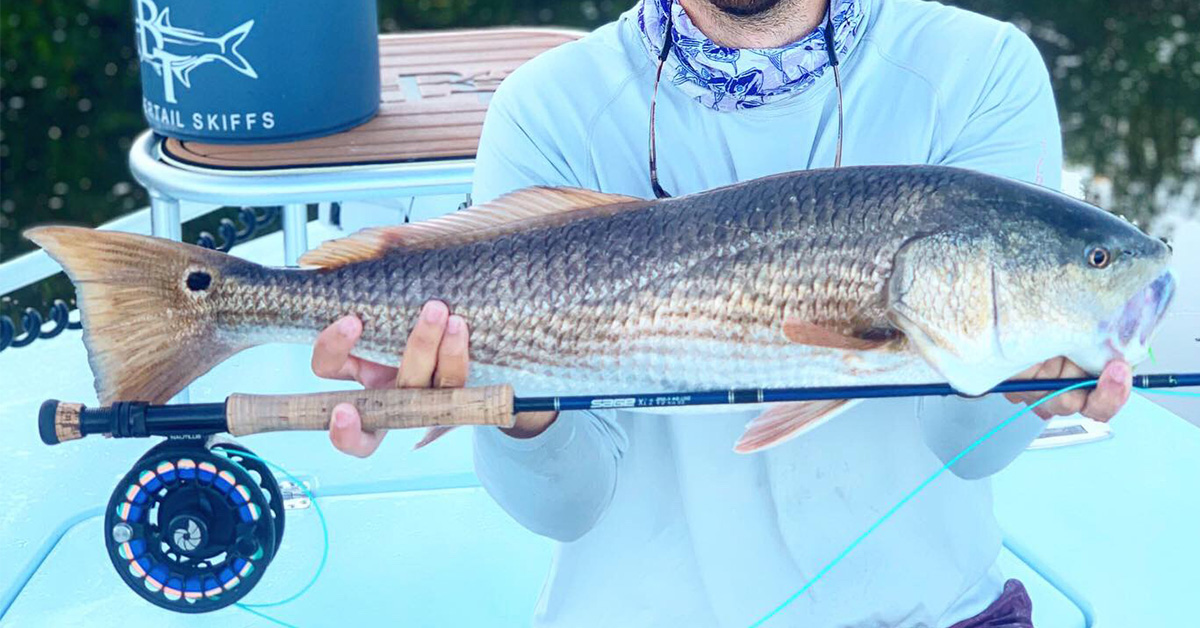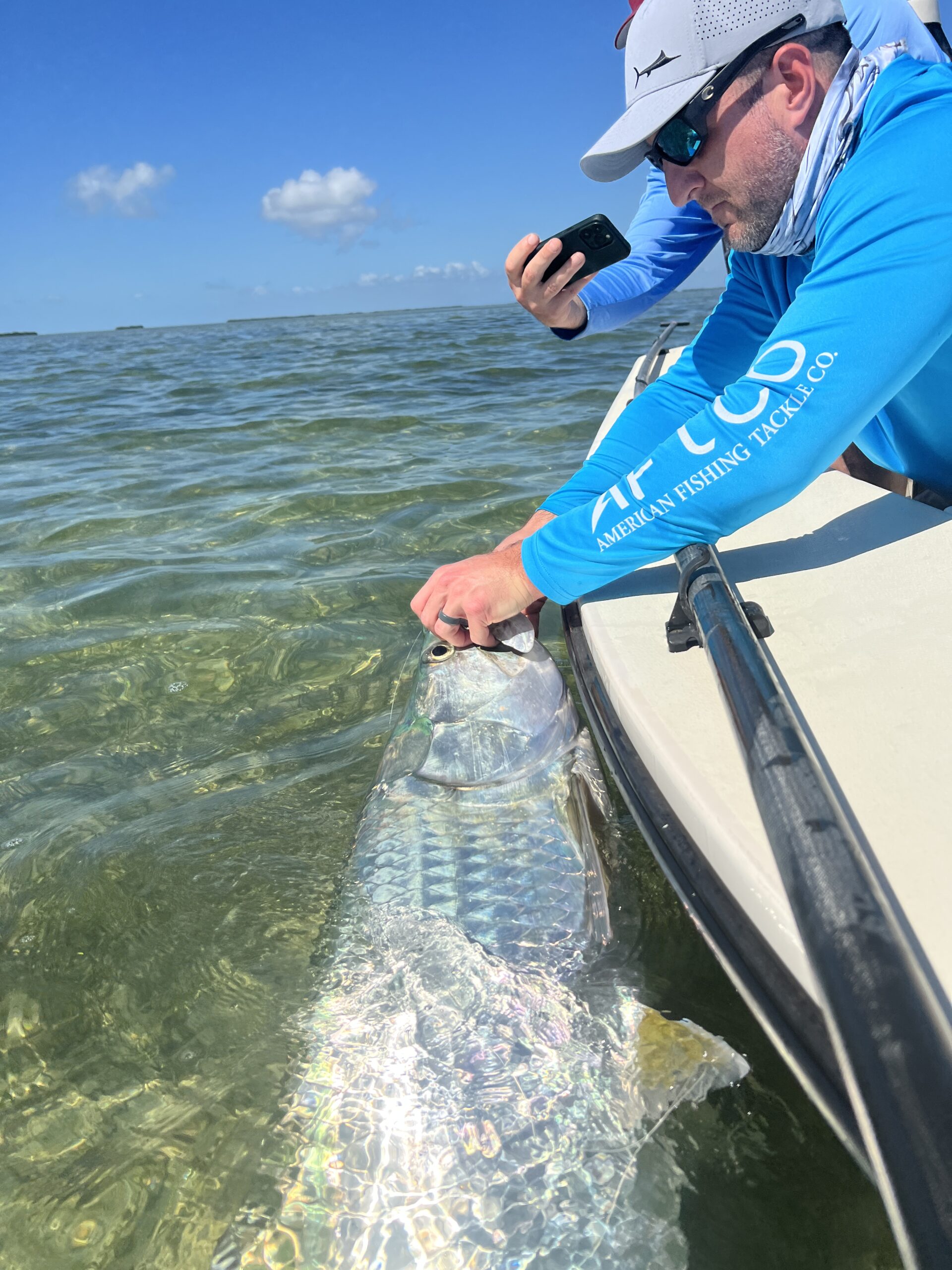Saltwater fly fishing environments are rough on gear. Saltwater fly fishing requires a specific type of fly rod that is designed to withstand the harsh conditions of saltwater environments.
Here are some factors to consider when choosing a saltwater fly rod:
- Line weight: The line weight is the most important factor to consider when choosing a saltwater fly rod. The line weight should be matched to the size of the fish you are targeting and the type of fly fishing you will be doing. For example, if you are targeting tarpon, you will need a heavier line weight. If you are targeting bonefish, you will need a lighter line weight.
- Action: The action of the rod refers to how it bends when you cast or fish. A fast-action rod will bend quickly and recover quickly, making it easier to cast long distances and fight larger fish. A slow-action rod will bend more slowly and recover more slowly, making it easier to cast delicate flies and fish in windy conditions.
- Power: The power of the rod refers to how much weight it can cast. A powerful rod will be able to cast heavier flies and fish larger fish. A less powerful rod will be easier to cast, but it will not be able to cast as heavy flies or fish as large fish.
- Length: The length of the rod will affect casting distance and accuracy. A longer rod will cast further, but it will be more difficult to control. A shorter rod will be easier to control, but it will not cast as far.
- Material: The material of the rod will affect its durability and performance. Graphite rods are lightweight and strong, making them a good choice for saltwater fly fishing. Fiberglass rods are more durable, but they are not as strong as graphite rods.
When selecting a saltwater fly rod, it is also important to consider the type of fish you are targeting, the conditions you will be fishing in, and your own experience level.
The size and strength of the fish you are targeting will determine the line weight and power of the rod you need. For example, if you are targeting tarpon, you’ll need a heavier rod than if you are targeting bonefish or snook.
The wind and waves will affect how much weight you need to cast and how much control you need over the rod. If you will be fishing in windy conditions, you will need a rod with a faster action. If you will be fishing in calm conditions, you can get away with a slower action rod.
If you are a beginner, you may want to choose a rod that is easier to cast and control. A rod with a slower action will be easier to cast, but it will not be as powerful as a rod with a faster action.
Here are some additional ways to learn about the various saltwater fly rod brands/options:
- Talk to other anglers: Talk to other anglers who saltwater fly fish and get their recommendations. They can give you valuable insights into the different rods on the market and help you choose the right one for you.
- Read reviews: Read reviews of different saltwater fly rods online. This can be a great way to learn about the pros and cons of different rods and make an informed decision.
- Try out the rod before you buy it: If possible, try out the rod before you buy it. This will give you a chance to feel how it casts and handles and make sure it is the right fit for you.
Once you have considered the above factors, you can start to narrow down your choices. No matter what your budget or experience level, there is a saltwater fly rod out there that is perfect for you. Do your research, find the right rod for your needs, get out there and have some fun fly fishing!


Leave a Reply
You must be logged in to post a comment.